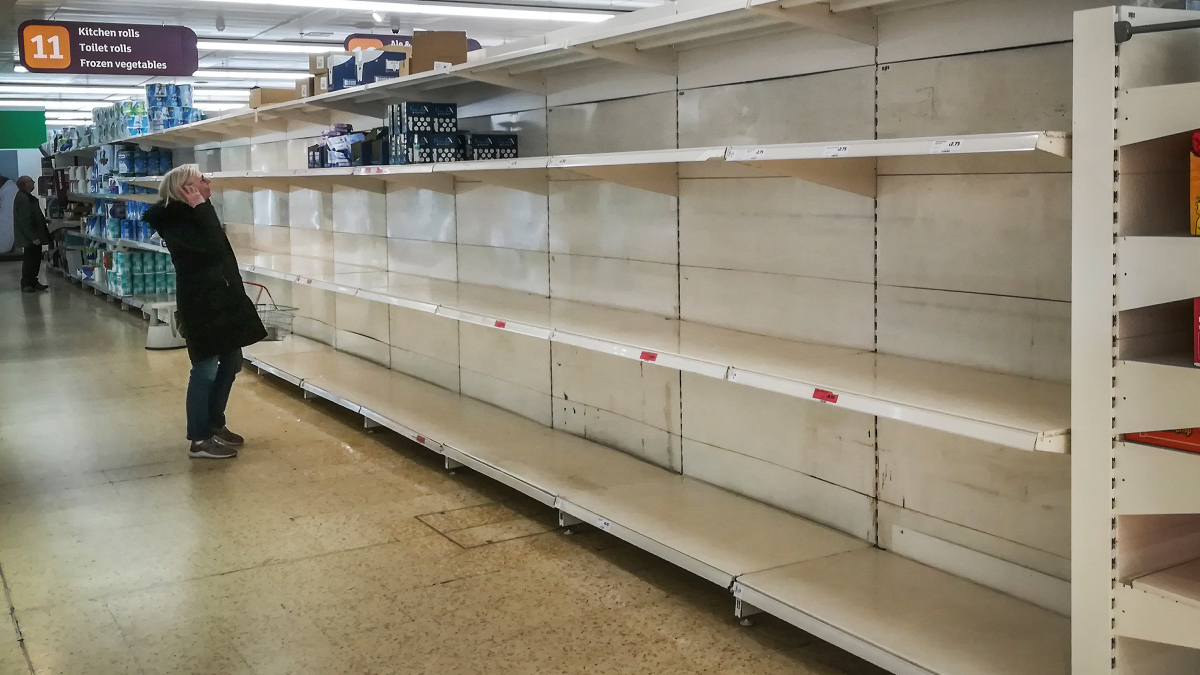It’s all very well for certain well-off Westerners to coo over how much nicer everything is under lockdown, but they’re not shouldering the real burdens of the Xi Plague crisis.
While the lifestyle pages of the legacy media are awash with well-heeled columnists penning rose-coloured rhapsodies about how much nicer their lives have been under lockdown, and social media are flooded with swooning about dolphins in Venice or clear skies over Los Angeles, people in many parts of the world are paying a grim price for lockdowns.
It’s not just the tens of millions of workers who’ve suddenly found themselves on the dole queue or the business owners watching their livelihood vanish.
As recently reported, the continuing crisis triggered by the Xi Plague is hammering the poorest workers in the world.
Now, it’s threatening the world’s worst-off with mass starvation.
The coronavirus pandemic hit the world at a time of plentiful harvests and ample food reserves. Yet a cascade of protectionist restrictions, transport disruptions and processing breakdowns has dislocated the global food supply and put the planet’s most vulnerable regions in particular peril.
“You can have a food crisis with lots of food. That’s the situation we’re in,” says Abdolreza Abbassian, a senior economist at the Food and Agriculture Organization of the UN.
Keep in mind that this is an entirely manufactured crisis. Firstly, by the Chinese regime allowing the virus to spread so quickly and stealthily around the world; secondly, by the frenzied lockdowns imposed by panicked politicians relying on dodgy computer models.
Prices for staples such as rice and wheat have jumped in many cities, in part because of panic buying set off by export restrictions imposed by countries eager to ensure sufficient supplies at home. Trade disruptions and lockdowns are making it harder to move produce from farms to markets, processing plants and ports, leaving some food to rot in the fields.
At the same time, more people around the world are running short of money as economies contract and incomes shrivel or disappear. Currency devaluations in developing nations that depend on tourism or depreciating commodities like oil have compounded those problems, making imported food even less affordable[…]
The [World Food Program] has warned that up to three dozen nations could face famines by the end of the year, potentially pushing an additional 130 million people to the brink of starvation.
Self-sufficient farming nations with mostly intact supply chains are experiencing limited shortages (it’s impossible to get frozen spinach, all sourced from New Zealand, here in Tasmania); there is little danger of severe hardship. But in the world’s developing nations, it’s a very different and potentially disastrous story. The longer politicians resist reopening the world’s economies, the worse the impending danger.
As economies worldwide come out of lockdown, logistical issues could be resolved, borders could start to reopen and food trade would pick up, alleviating some risks. Yet, it is unclear how many months that would take — a variable that depends on the future course of the pandemic itself.
The biggest danger going forward, economists say, is that the pandemic’s dislocations will affect not just existing food stocks but planting and harvesting in coming months. That already is occurring in parts of the world, just as a swarm of locusts is eating its way across swathes of Africa and Asia.
Farmers in India are forbidden from harvesting their crops, which simply rot in the fields. Food that is harvested is left to waste because there’s no means of getting it to market. Shipping and air cargo transport have both dropped by more than a third.
“Suppliers either don’t have the goods, they are not manufacturing, or they don’t know how to get the goods to [Nigeria],” [Haresh Keswani] says. “What is not getting through is a huge list. Are the fruits and vegetables getting through? No. Are the meats getting through regularly? No. There is not enough.”
Neither the politicians imposing these lockdowns, the technocrats reading the entrails of bogus computer models, nor the media and celebrities shrieking to “stay home!” are paying the price for what they’re forcing on everyone else. It’s the working-classes and the world’s poorest people who are having to live with unemployment and the threat of famine.
So much for “saving lives”.
If you enjoyed this BFD article please consider sharing it with your friends.

